Pink Floyd Becomes Another Brick In The Wall Of Iranian Protests
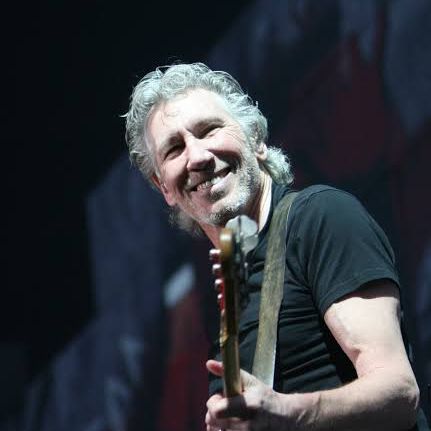
Legendary co-founder of Pink Floyd Roger Waters has expressed anger over the death of Mahsa Amini, the Iranian woman whose tragic fate has inspired an uprising in the country.

Legendary co-founder of Pink Floyd Roger Waters has expressed anger over the death of Mahsa Amini, the Iranian woman whose tragic fate has inspired an uprising in the country.
The English musician released a video on Friday, saying “We are all brothers, sisters and cousins; we are all related Mr. Ayatollah! Mahsa is my sister... She should be alive today. She and all her sisters must be able to decide whether or not their heads are covered.” “It's none of your business!" He added.
He said Mahsa was arrested by “some kind of weird moral police”, and “she was beaten to death,” adding that he was watching the footage of people protesting her death on the streets.
He also quipped that the ayatollahs may say it is none of my business and it is their country, but they are wrong, “I am a human being and I believe in human rights, and Mahsa Amini has human rights.”
“I am very very angry and I can understand why people are angry... all over the world,” he said.
He also mentioned Neda Agha-Soltan, who was shot dead by a militiaman belonging to Basij paramilitary forces in protests following the disputed Iranian election in 2009.
Waters also dedicated a song in his latest concert to Mahsa as a tribute to the young woman.
As Saturday dawned in Iran protests continued and two trends could be discerned. First, many began to say that this is a revolution and not just protests, and second, it is led by women.
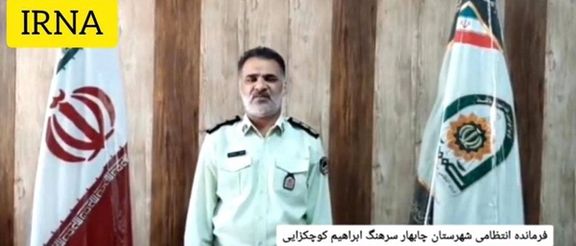
A leading Sunni cleric in Iran, sometimes critical of the government, has implicitly confirmed reports about the rape of a 15-year-old girl by a police commander.
Molavi Abdolhamid, the religious leader of Iran’s largely Sunni Baluch population living in the southeastern province of Sistan and Baluchestan referred to the incident during his sermon on Friday, describing it as “the incident,” without elaborating the names and the details of the case.
Haalvsh website, a local news outlet, first reported the rape earlier in September but the case was buried, and no investigation took place to follow up the case.
Colonel Ebrahim Khouchakzai, the commander of the police in the city of Chabahar, allegedly raped the 15-year-old girl when he was investigating a murder case in one of the neighborhoods of the city. Apparently, the girl was the daughter of one of the neighbors of the murdered woman and Khouchakzai took her to his office for questioning and raped her.
The girl came back home and told her mother that the colonel stripped her clothes off under the pretext of checking her body and then raped her.
According to the latest reports, the police forces of the city have taken hostage three relatives of the rape victim to force her family to publicly deny the reports and promise not to file complaint against Colonel Khouchakzai.
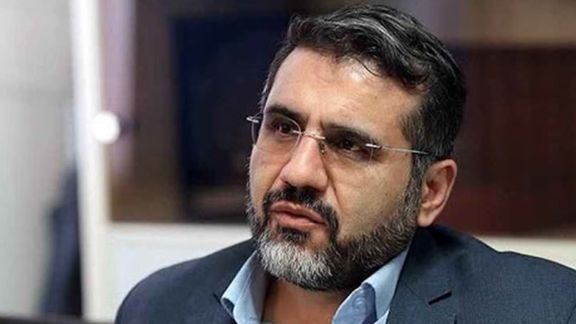
Iran’s culture minister has said that Iranian actresses who have unveiled in public or social media in support of hijab victim Mahsa Amini can no longer continue their careers in acting.
Mohammad Mehdi Esmaili said on Saturday that the female actresses who removed compulsory hijab made a decision not to follow the rules, therefore they cannot engage in artistic activities.
"They can freely do other jobs," he added, noting that “if someone insists on not obeying the laws of the Islamic Republic, we do not insist on forcing them to do so.”
He made the remarks as over 100 Iranian actors and filmmakers issued a statement on Saturday, calling on military forces to take down their weapons and "return to the arms of the nation."
"Once again, we remind all the people who have become agents of repression and violence against the people in the military units that these rifles were provided to them with public funds to defend the people. Do not point guns at the people and youth of Iran," they wrote.
Even before the start of unrest over the death of Mahsa Amini, the 22-year-old girl who died in hands of hijab enforcement patrols, the Islamic Republic’s security apparatus has increased pressure on the signatories of a statement against Iran’s crackdown on popular protests to rescind their signatures from another similar statement.
More than 100 film industry figures issued a statement in May titled “Lay down the gun,” calling on military and security forces who “have become tools for cracking down on the people,” not to suppress protesters during popular demonstrations.
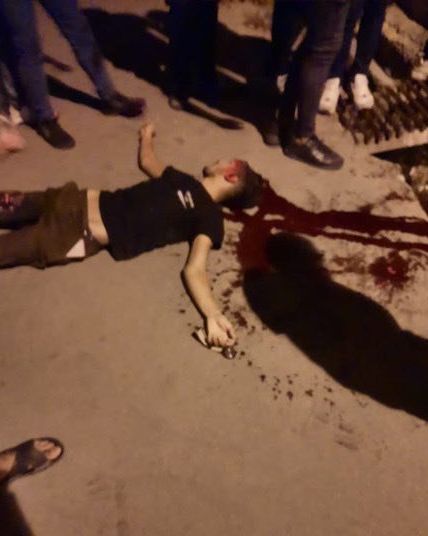
The police chief of the northern province of Gilan says security forces have arrested about 740 people in the ongoing unrest during the last week, suggesting that the number is much higher across Iran.
Azizollah Maleki said in a press conference on Saturday that these people were detained because they disturbed the public order, adding that at least 60 of them are women who were arrested in the past three days.
He added that “a group of saboteurs” was also identified and two of them have been arrested so far.
He claimed that a large number of the arrested people are not locals and entered Gilan for rioting and vandalism, and many firearms and cold weapons were also seized from them.
Most of the arrested people are young but many of their leaders have criminal records, he alleged, saying that some of them were arrested and some were identified and will be arrested in the coming days.
The number of people who have been arrested during the past week’s protests is definitely higher, but authorities rarely announce large numbers of arrests. Almost all over the country, people are holding daily protest rallies following the death of Mahsa Amini, the 22-year-old woman who died of a severe head trauma caused by several blows to her head by the hijab enforcement patrols.
While the government in Iran seems incapable to stop fierce protests, hardliner religious leaders on Friday doubled down on enforcing hijab for women.
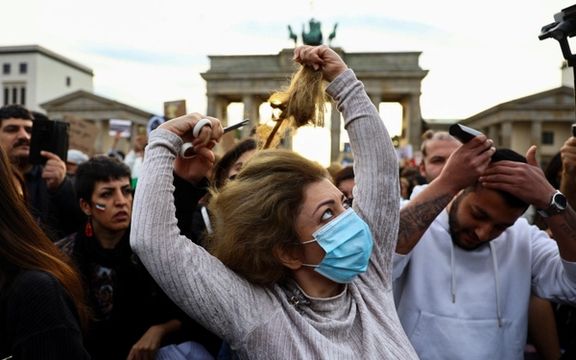
Amnesty International has reiterated its calls for urgent global action, warning of further bloodshed in Iran amid a deliberately imposed Internet blackout.
“UN member states must go beyond toothless statements, hear the cries for justice from victims and human rights defenders in Iran and urgently set up an independent UN investigative mechanism,” said Heba Morayef, Middle East and North Africa Director at Amnesty International.
Amnesty said evidence it had gathered this week of fresh violence in 20 cities and 10 provinces across Iran points to a “harrowing pattern of Iranian security forces deliberately and unlawfully firing live ammunition at protesters.”
According to the organization, on the night of 21 September alone, shootings by security forces, consisting of Revolutionary Guard agents, paramilitary Basij forces and plainclothes security officials, left at least 19 people dead, including at least three children.
“Amnesty International has reviewed photos and videos showing deceased victims with horrifying wounds in their heads, chests and stomachs,” the organization said adding that the rising death toll is an alarming indication of just “how ruthless the authorities’ assault on human life has been under the darkness of the internet shutdown.”
An Iranian security agent aims and fires his assault rifle at protesters
Iran's state-run television Friday evening reported a death toll of 35 protesters and security forces but according to Iran Human Rights (IHR), a rights group, at least 50 protesters were killed in various cities and towns across the country since protests started last week. Several videos published on social media show security forces directly aiming at protesters with shotguns or rifles.
Authorities have resorted to what global Internet watchdog NetBlocks has called “curfew-style cellular network disruptions” to interrupt contact among protesters and leaking of footage from the protests. they have also restricted Instagram, WhatsApp, and LinkedIn at the national level.
The General Staff of the Armed Forces in a statement Saturday praised security forces’ “patience” but warned that they will no longer tolerate “any violence or insecurity” and would “take decisive action against those who disrupt public order and security”.
Security forces have extensively arrested protesters as well as dozens of activists and journalists including photojournalist Yalda Moaieri, journalist Fatemeh Rajabi, and Niloofar Hamedi, a journalist with the Shargh daily who was first to report Mahsa Amini’s case from a hospital in Tehran where she was taken after collapsing at a detention facility.
Officials, including President Ebrahim Raisi, and state media insist there will be a probe into the young girl’s death and claim those on the streets are “thugs” and “rioters” who have “hijacked” protesrs over her death to push their own agenda. The Revolutionary Guards (IRGC) has warned protesters and attributed the protests to “enemy plots” carried out by “anti-revolutionaries”.
Authorities mobilized supporters to stage demonstrations after Friday prayers and claimed “millions of Iranians” took part, but eyewitnesses claim supporters’ numbers were so small that the state television had to resort to images from previous years in its broadcasts. At least in one image shown on television the date on a banner belonged to several years ago.

While the government in Iran seems incapable to stop fierce protests, hardliner religious leaders on Friday doubled down on enforcing hijab for women.
At the same time, a few members of the parliament and have admitted that dress code enforcement by Iran's hijab patrols (nicknamed by foreign media as morality police) has been problematic.
Karim Hosseini, a member of parliament (Majles) has said that the government should not ignore Mahsa Amini's death in custody that triggered the protests, with the pretext of defending the police force. Shahryar Heidari, a member of the Majles National Security Committee also said that the government should stop the hijab police's activities adding that the police force should not be used to clamp down on "bad hijab".
Meanwhie, Seminarian Ayatollah Ali Akbar Massoudi Khomeyni has told reporters that "the hijab police's treatment of Iranian woman is against the teachings of Islam," adding that "Only judges can rule about the hijab, but even they cannot tell a woman that your hijab is not consistent with the dress code and punish them." This comes while protesters’ demands have gone far beyond their grievances about hijab and apparently, they will not settle for anything less than a regime change.
However, hardliner Friday prayers Imams in various cities, who receive their marching orders from a central office controlled by Supreme Leader Ali Khamenei, insisted in their sermons that the hijab police should remain in place with permission to use force against women.

The firebrand Friday Prayers imam of Mashad, Ahmad Alamolhoda said: "Hijab is the most important issue in Islam. The enemies of Islam wish to promote a lifestyle without hijab." He charged that previous governments have ignored the importance of hijab but added that "since 2006 some 20 organizations have been established in Iran to promote the idea of hijab." Meanwhile, he praised the police force as the pivot of the authority of the regime for upholding hijab," without mentioning the murder of Mahsa Amini.
Alamolhoda said in his sermon that "women's hair corrupts young men just as half-naked women can do."
In Tehran, Ahmad Khatami who led the prayers on Friday, criticized monarchists and the supporters of Mojadein-e Khalq organization for "supporting a woman," meaning hijab victim Mahsa Amini. Meanwhile, Intelligence Minister Esmail Khatib attributed the protests against Amini’s killing to "the enemies" without making clear who the enemies were. However, his statement was vague and general, as he deliberately tried not to make any categoric assertions before Khamenei expresses his opinion about the nationwide protests.
Commenting on the situation, Tourism Minister Ezzatollah Zarghami reassured the government and supporters of the hijab police in a September 23 tweet that "revising some of the laws and inefficient approaches" that have annoyed the protesters "will not lead to a domino-like collapse of the regime."
Reformist analyst Mohammad Reza Tajik commented that the protests over police brutality have revealed the naked image of the regime. Tajik wrote that although the government will come up with some superficial solutions, trying to keep the foundations of the regime in place, wide gaps have emerged in Iranian society that make it difficult to conceal the crisis.
Tajik stressed that the current situation is dangerous as there is no serious sign to indicate that the regime has understood the situation, and there seems to be no determination to address the root causes of the crisis.